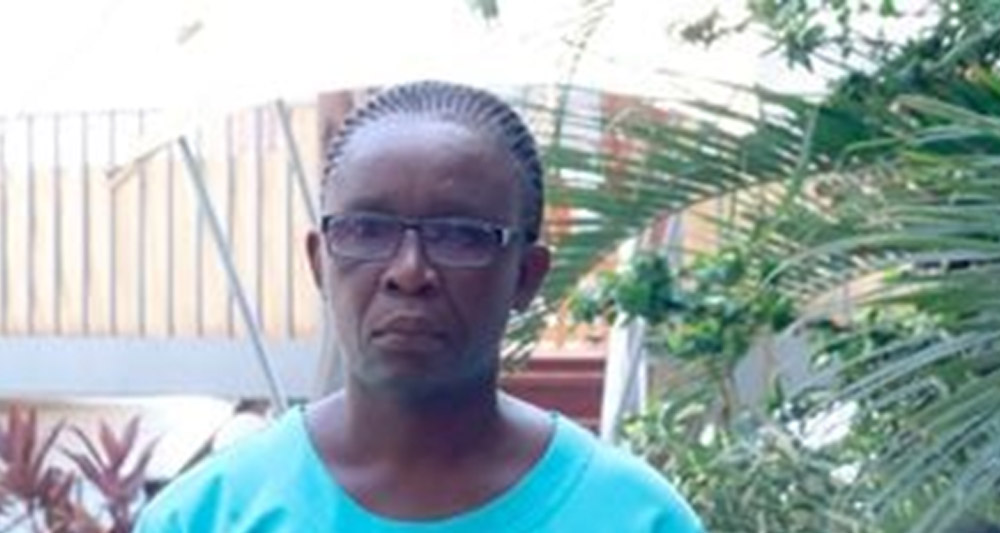What you need to know: FGS is characterised by a range of gynecological complications, including lesions, vaginal bleeding, pain, and infertility.
Ms Timina Ogot is all smiles as we settle for an interview on a sunny Tuesday afternoon.
She is eager to tell the story of her battle with a medical condition that health experts were unable to diagnose for eight years.
Timina’s case was initially misdiagnosed as cervical cancer and later as urinary tract infection (UTI).
“I was having abnormal vaginal discharge with an odour. My vagina was also itchy and had a bloody discharge,” says Timina.
In November 2024, Timina was finally diagnosed with Female Genital Schistosomiasis (FGS), a neglected tropical disease caused by parasitic worms (Schistosoma) that live in freshwater. The worms infect individuals in contact with contaminated waters.

According to the World Health Organization (WHO), the condition, which is preventable and treatable, affects millions of women and girls without access to safe clean water in rural Africa. They are at higher risk due to daily activities like bathing, washing, and farming, which exposes them to the parasites. FGS is characterised by a range of gynecological complications, including lesions, vaginal bleeding, pain, and infertility.
According to the global health agency, healthcare providers often confuse FGS with sexually transmitted infections or other gynecological conditions due to overlapping symptoms.
Speaking to Healthy Nation, Timina revealed that her troubles began way back in 2016. She sensed something was wrong after noticing abnormal vaginal discharge and bleeding. The 42-year-old had gone ahead to consult a relative, who advised her to seek medical attention, suspecting she could have cervical cancer.
Upon visiting Homa Bay County Teaching and Referral Hospital, Timina says she was never screened for cervical cancer. Instead, a health worker prescribed medication upon suspecting that Timina had UTI. Timina, however, opted to visit a different health facility a couple of weeks later when the bleeding failed to stop.
“The doctors at the hospital advised that I should undergo cervical cancer screening,” says Timina, adding that she was later diagnosed with the cancer.
Initial stages
Doctors assured her that the disease was still in its initial stages and could be treated. She was taken through cryotherapy, a medical treatment that uses extreme cold to freeze and destroy diseased cells, including some cancers.
After the procedure, she was discharged and told to go back for check-up in six months. During her next hospital visit, she was referred to Homa Bay Teaching and Referral Hospital for an ultrasound. The procedure did not, however, reveal any cervical cancer strain.
“Despite the new development, my genitals were still itchy and the abnormal discharge had persisted. I was also still bleeding,” says Timina.
She then resorted to visiting different health facilities in search of remedy, all this while she would be diagnosed with UTI.
In 2022, she secured a job at a health center in Homa Bay as a HIV testing service provider. Whenever an opportunity presented itself, she would share her medical condition with health experts; hoping to find a solution.
The continuous bleeding had forced her to regularly wear sanitary towels, worsening the itchy feeling.
“My husband and I also struggled engaging in intercourse due to the continuous bleeding, pelvic pain and itchiness,” she says. She adds that the odour from the discharge also made those around her uncomfortable, and she ended up feeling stigmatised.
In 2024, Timina was selected to participate in a staff medical education programme offered by LVCT Health on FGS. It is during the training that Timina realised she had symptoms similar to those of FGS patients. She approached one of the researchers who tested and diagnosed her the condition.
She was placed on a one-day medication and asked to visit the hospital for review after eight weeks. Last year in November, she took the second dose and recovered fully.
Dr Robinson Karuga, a research scientist at LVCT Health, describes FGS as a long term manifestation of bilharzia.
The health experts say FGS patients are more likely to be infected with HIV/Aids. The condition, he says, also makes patients susceptible to cervical cancer.
Dr Karuga says Tamina is among 8,000 women who took part in a recently concluded research by the Ministry of Health and LVCT Health aimed at finding a possibility of integrating delivery of FGS into routine sexual and reproductive health services.
The study dubbed ‘FGS-Sexual Reproductive Health Integration’ was conducted in Homa Bay, Kilifi and Kwale counties between December 2023 to 2024.
At the end of the study, 28 per cent of people suffering from bilharzia in Homa Bay County tested positive for FGS.
“In Kwale County, 15 per cent of bilharzia patients were also diagnosed with FGS,” he says.
The researcher says the findings have established the need for integrating FGS and routine sexually reproductive health services, a move that will go a long way in enhancing the quality of life among women suffering from the silent epidemic.
The researcher is advocating allocation of more resources for training and procurement of commodities for use in addressing the medical condition.
Homa Bay County Chief Officer Medical Services Dr Kevin Osuri says previous studies have shown that the disease is also prevalent in Kisumu, Migori and other counties bordering the lake.
The disease, he says, poses a challenge in the fight against HIV/Aids, which has remained prevalent in the lake region. “We are looking forward to conducting widespread training of medical staff and bridging the funding gap to improve diagnosis and treatment of the condition,” he said.
Story by: anyangoangy1@gmail.com, georgeodiwuor04@gmail.com
Watch: https://youtu.be/sXkH2QMyYIk
